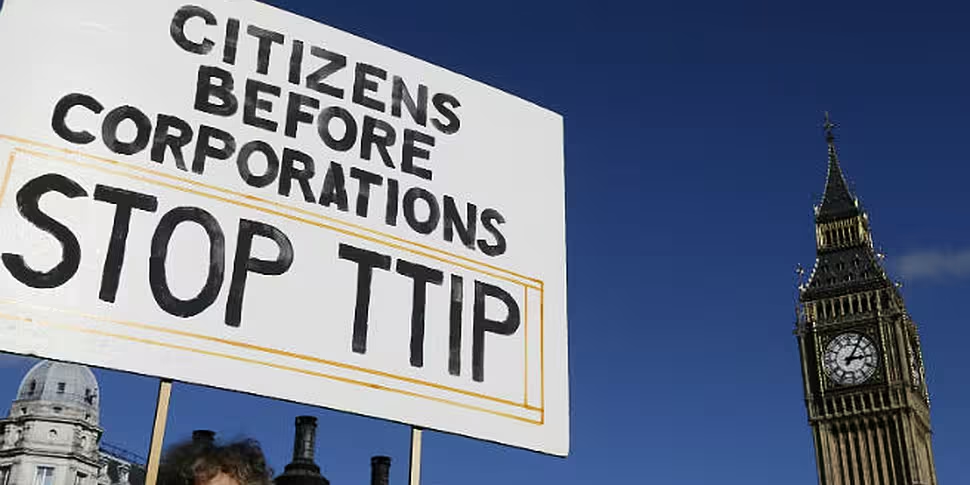In the crucible of European politics last week, deep rifts surfaced as the Strasbourg parliament chamber was filled with boos and slow clapping, all over a proposed trade agreement between the EU’s members and the United States.
The ‘Transatlantic Trade & Investment Partnership’ (TTIP) debate ended up being suspended amid all the controversy, as members of the public protested for a boycott, expressing their concerns that the deal would effectively hand over too much power to some of the biggest corporations in the world.
So just what is the ‘Transatlantic Trade & Investment Partnership’, and why has it split the European Parliament?
What exactly is TTIP?
TTIP is essentially a free-trade agreement between the two economic powerhouses on either side of the Atlantic ocean, the EU and the US. For the past two years, negotiations have been attempting to hammer out the details of what would become the largest free-trade zone on the planet, in a part of the world responsible for more than 25 percent of all trade on Earth.
Ultimately, both the US and the EU hope to make it easier to import and export goods and services between member states, and to cut down on much of the bureaucratic red tape that exists when businesses aim to invest and set up shop abroad.
By 2027, the European Commission hopes that TTIP will have added an extra €120bn to the beleaguered European economy, and €95bn for our friends across the pond.
At its core is the concept that saving businesses money will benefit European consumers, who will be able to choose from a wider choice of cheaper goods.
The TTIP-ping point?
But now, after 24 months at the conference table, critics of the agreement have become very vocal with their concerns over what signing on the dotted line will result in severe repercussions for average consumers; they say that TTIP undermines democratic rights by placing too much power in the hands of large corporations, while preventing governments from their sovereign duty of regulating consumer laws in the public interest.
European activists believe that the EU’s capacity to rule on such diverse and significant areas as environmental issues, employment rights, and food safety could be compromised. More than 2m people have signed a petition asking the EU to abandon the agreement, calling it a “threat to democracy, the environment, consumers and labour standards.”
Of particular concern to many critics is the ambiguity surrounding a clause known as the ‘Investor State Dispute Settlement’ (ISDS), which could potentially allow multinational corporations to file lawsuits against individual governments in private, while others worry that the deal would force the deregulation of state monopolies in health and transport systems.
What do the EU and US have to say on the matter?
Officials in Brussels maintain that TTIP will be ironclad in its interpretation of the current EU consumer laws, and that any member state’s government would be left free to run public services as they are. Those sitting on the European side of the negotiating table claim they are being as “transparent as possible”, and that they regularly produce supporting documentation that outlines how each and every chapter of TTIP will impact European citizens.
As for ISDS, European delegates have said that they will work to make the process more visible to public scrutiny by arguing for open hearings in disputes between foreign companies and member-state governments.
What does this all mean for Ireland?
Ireland is a small open economy which is highly dependent on international trade - and whatever about the broader implications, all evidence suggests that the Irish economy will grow if TTIP goes through.
Research commissioned by the Irish government and concerned with the economic impact of TTIP found that it would create 10,000 new jobs in Ireland and cause a permanent 1.1 percent expansion of the country's domestic economy.
The study was compiled by Copenhagen Economics, it found that a number of sectors of the economy would be boosted by an agreement, while other areas like Ireland's lucrative beef industry would shrink by between 2 and 3 percent.
Mr Kenny has said that he hopes to see the deal done before the end of 2015 - a number of independent and Sinn Fein MEPs have joined European movements against a deal.
On this evening's The Right Hook, Richard Bruton TD, Minister for Jobs, Enterprise & Innovation, outlined the government's stance on TTIP and the ongoing negotiations. Listen back to the podcast here.









